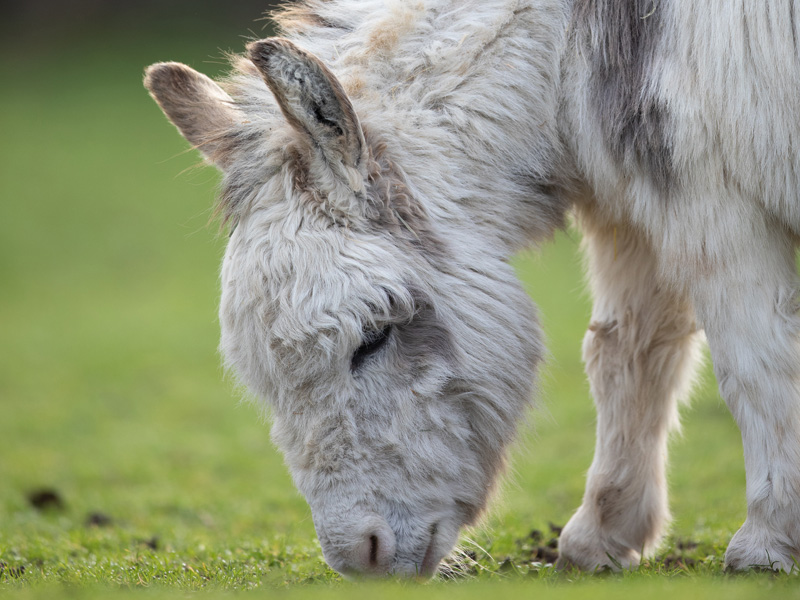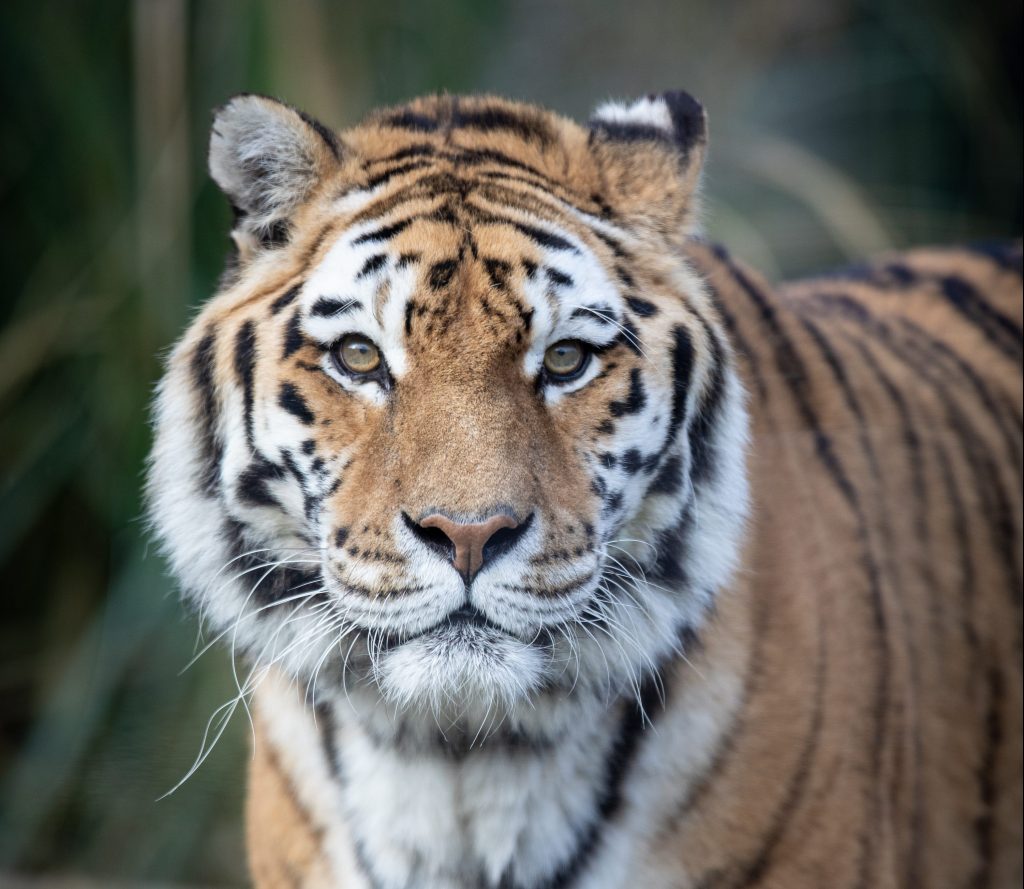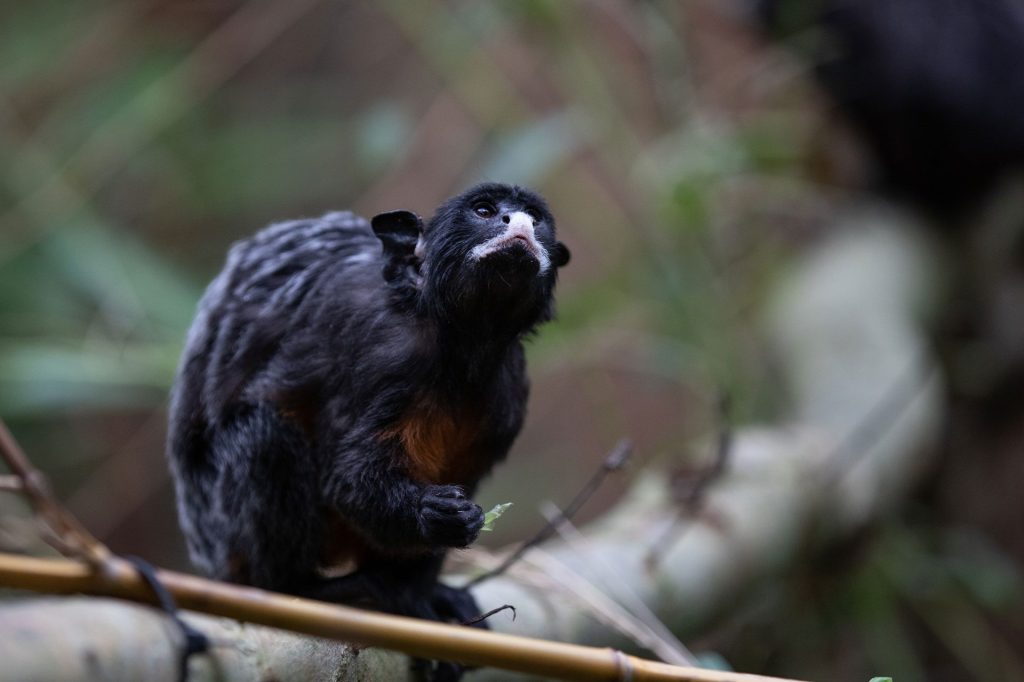
Popular Searches

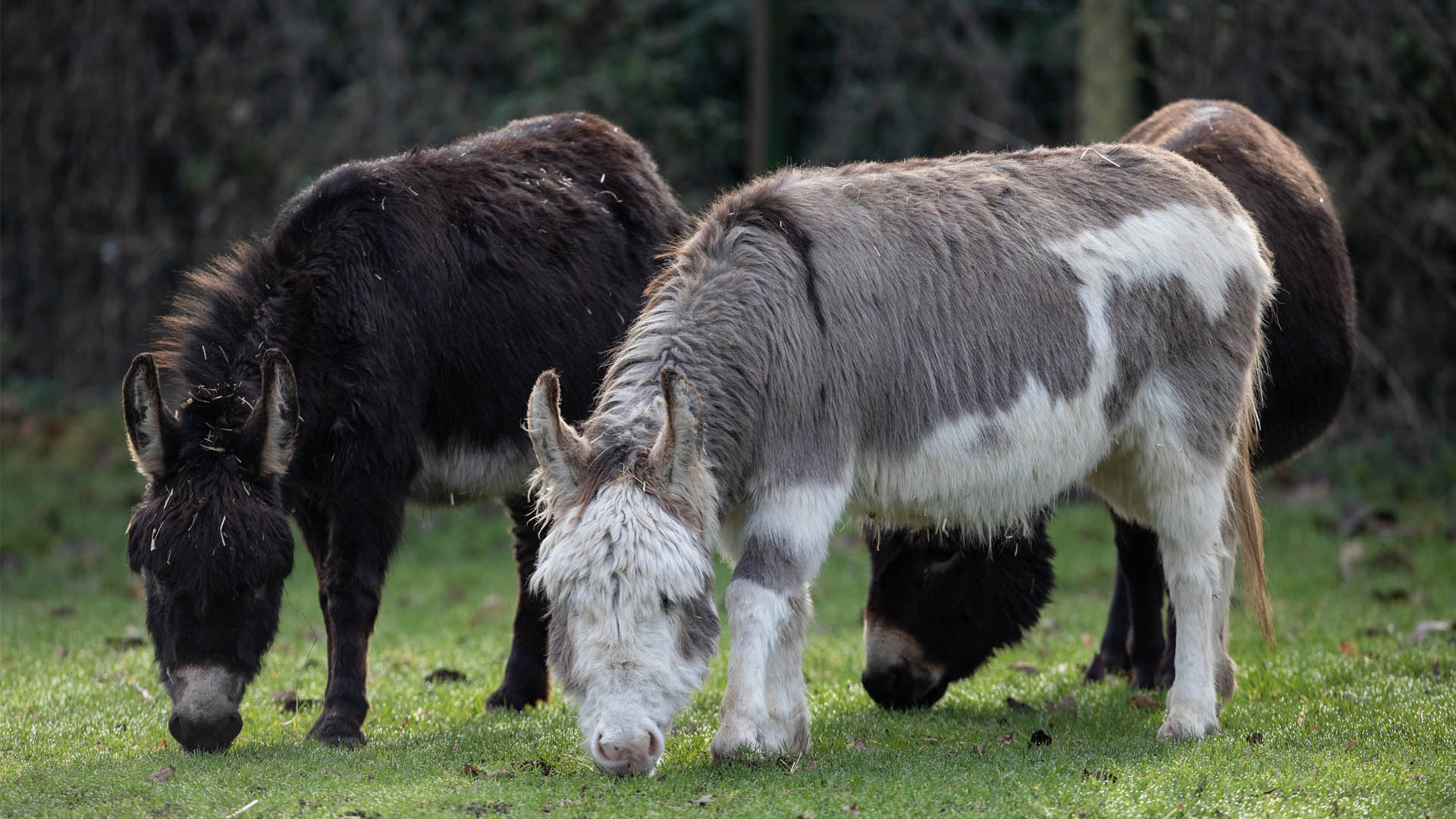
Zoo News – November 2023
It’s time for our November zoo news! This month we had a dentist appointment with donkeys, Amur tiger Khan went through an important health procedure, and there was an introduction of two primate species.
Tamarins and Marmosets mixed
After the successful introduction of our male and female silvery marmosets last month, we decided to mix single female red-bellied tamarin “Lisa”, in with another pair of silvery marmosets.
Primates such as marmosets and tamarins are a social species and therefore, we took the decision to mix the two species. Introductions took place over several steps to ensure all individuals are comfortable.
Lisa was moved to the same habitat as the silvery marmosets. There was a physical barrier of mesh between the tamarin and marmosets, however, they got their first visual interaction to one another. This way they could see, hear, smell, and become accustomed to one another whilst still having the protection of a physical barrier. Full introduction (i.e., removal of barrier/full habitat access) would not take place for a further 7 days. Keepers closely monitored the interactions between the 3 primates. In the initial stage, they fed closely to each other but were not in direct competition for food, and, as no aggression or negative interactions were seen, a full introduction took place. Despite an initial hesitance from the silvery marmosets, within an hour of the introduction taking place, they were all eating from the same feed bowl and sitting beside each other on a branch.
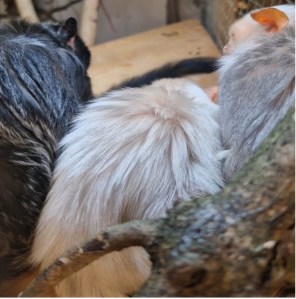
Lisa, Amethyst and Geralt
📸 Emma B
Keepers observed the interactions for the day and were happy to leave the trio together overnight. Keepers were overjoyed when they came in the following morning to find all three huddled together asleep.
Managing aging animals in our zoo
Amur tiger, Khan
Zookeeper’s noticed that Khan had an overgrown claw in his front right paw and decided to train him to allow them to file back the claw using a Dremel. Despite huge success with the training, the zookeeper’s were unable to fully cut back Khan’s claw using this method.
The decision was made for our vet to sedate Khan to allow successful trimming of his claws. Whilst he was sedated the vet would also carry out a thorough health check, taking bloods, conducting x-rays, and a dental check.
Through previous vaccination training, zookeepers and our veterinary nurse were able to administer the anaesthetics and sedate Khan without any problems.
Khan’s x-ray’s showed some minor degenerative changes in his stifle joints, and some arthritis in his spine but overall, Khan is in good health for his age.
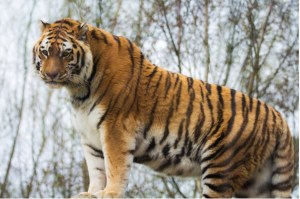
📸 Emma B
Khan came around from sedation understandably a little groggy, but his recovery went well. He was kept separated from female Bira overnight to allow him to recover fully. The following morning, keeper’s found Khan and Bira lying beside each other although in separate dens in the Tiger house. Khan was given back outside access and reunited with Bira as both the zookeeper’s and veterinary team were happy with his progress.
Through successful training programmes, behaviours such as vaccination training can have a positive effect on the welfare of the animals in our care. Within the zoo, we have two BIAZA accredited trainers, with the hopes of one becoming an accredited instructor and another beginning the course too!
Equine dentist
Even a donkey must have regular dental appointments. As well as regular visits from the farrier (looks after horses and donkeys hooves) at the start of November, donkey’s Jack, Delilah, Nelson and Bailey, had an equine dentist come in to look at their teeth. Donkeys are stoic animals (can be good at hiding pain), so it can sometimes be hard to tell if they are having dental issues without regular checks.
Donkeys have similar dentition to a horse and their teeth continue to grow throughout most of their lives, for this reason it is important for them to have regular dental checks as they may need to have to have a procedure done called ‘Floating’. Floating is when the teeth are filed down to remove any sharp edges or hooks on the teeth. This helps them to be able to chew and grind up their food which in turn aids digestion. The equine dentist checked each of the four donkeys teeth and they necessary work was carried out.
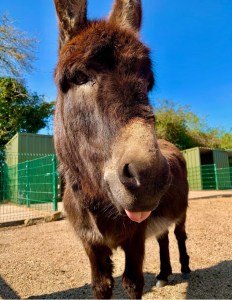
📸 Rob S
Saying goodbye to Sheila
On a sad note, we lost an elderly female emu, Sheila, earlier on in the month. Sheila had a brief illness and despite medical treatment, she sadly passed away. Male emu, Bruce, is doing well under the watchful eye of the zookeeper’s. Fortunately, the illness that Sheila passed away from is not infectious to other animals.
BIAZA Conservation Education Conference
Our Discovery and Learning Manager had the opportunity to travel to Knowsley Safari Park for the yearly BIAZA Conservation Education Conference. The annual BIAZA Conservation Education Conference is the largest meeting of Zoo and Aquarium educators and presenters in Britain and Ireland. It provides fantastic opportunities to share best practices, learn new ideas, network with like-minded peers, and discover programmes and opportunities that can have a direct impact on our collection, the learners we encounter, and earth’s biodiversity.
The theme this year was ‘every connection matter’s’, in the journey to protect biodiversity, every connection is a win. Creating connection to nature is a core component of our zoo’s mission; we carry this out through both informal and formal education. We want to ensure that our guests create a connection to nature when visiting our zoo and leave with a greater understanding of the world around us.
Thanks for reading. Check back next month for more zoo updates!
The Emerald Park Zoo Team



